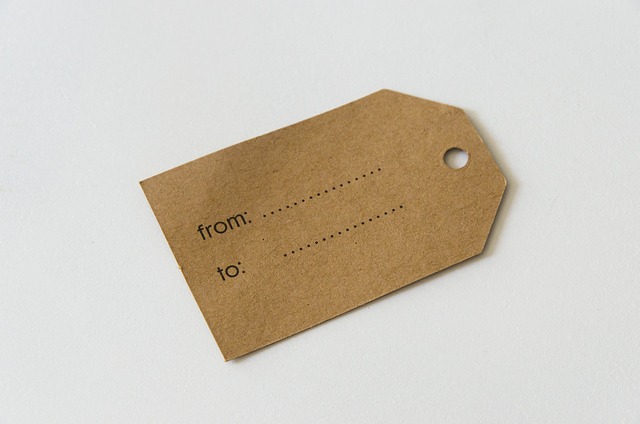Skin tags, caused by friction or trauma, can be effectively treated in Leeds using cryotherapy, surgery, or laser removal. Surgical options offer immediate results but may scar, while non-surgical methods are less invasive but might not prevent recurrence. Proper post-care and a healthy lifestyle significantly reduce the risk of future skin tags in Leeds. Consulting a dermatologist specializing in Tag Removal Leeds ensures personalized guidance for effective treatment and prevention.
Skin tags, those small, soft bumps on the skin, are common but many seek effective tag removal in Leeds. This guide delves into understanding skin tags, their causes, and risk factors. We explore a range of removal techniques, from surgical to non-surgical options, and provide insights into post-removal care. Learn about lifestyle changes and topical treatments to prevent recurrence. Discover when professional help is necessary for persistent skin tags. For effective tag removal Leeds residents trust, read on.
- Understanding Skin Tags: Causes and Risk Factors
- Effective Tag Removal Techniques in Leeds
- Surgical vs Non-Surgical Options: Pros and Cons
- Post-Removal Care: Ensuring Successful Healing
- Lifestyle Changes to Prevent Recurrence
Understanding Skin Tags: Causes and Risk Factors
Skin tags, also known as acrochordons, are small, soft skin growths that typically appear in areas where skin rubs against itself. They are usually harmless and often go unnoticed, but some individuals may find them unsightly or uncomfortable. Understanding the causes and risk factors associated with skin tags is an essential first step in preventing their recurrence.
The primary cause of skin tags is friction and trauma to the skin. This can occur due to various reasons such as weight gain, wearing tight clothing or accessories, or constantly rubbing against a surface. Individuals with certain genetic predispositions or those experiencing rapid hormonal changes may be more susceptible to developing skin tags. In some cases, skin tags can also be linked to medical conditions like diabetes or insulin resistance. Tag removal Leeds is a popular solution for those seeking to get rid of these growths and prevent future occurrences in the area.
Effective Tag Removal Techniques in Leeds
In Leeds, several effective tag removal techniques are available. One popular method is cryotherapy, where liquid nitrogen is used to freeze and destroy the skin tags. This quick and relatively painless procedure is often recommended for its efficiency in removing tags while minimizing scarring. Another option is surgical excision, involving a minor surgery to cut out the tag, suitable for larger or more persistent tags.
Laser treatments are also gaining popularity for Tag Removal Leeds. This method uses concentrated light energy to burn away skin tags, offering precise results with minimal downtime. Each technique has its advantages and is chosen based on the size, type, and location of the skin tags. Consulting a dermatologist in Leeds ensures you receive the most suitable treatment for your specific case, effectively preventing recurring skin tags.
Surgical vs Non-Surgical Options: Pros and Cons
When considering Tag Removal Leeds, it’s important to understand the distinction between surgical and non-surgical options. Surgical removal involves a healthcare professional excising the tag from its base using a scalpel or laser. Pros include immediate results and reduced risk of recurrence as the skin is sealed off during the procedure. However, cons may include scarring, pain, and higher costs associated with anaesthesia and recovery time.
Non-surgical methods, on the other hand, often use topical treatments or cryotherapy to freeze the tags. These approaches are generally less invasive, quicker, and cheaper. Yet, they might not offer the same level of effectiveness as surgery in terms of preventing recurring tags, requiring regular applications for continued results. Additionally, while these methods have lower risks, there’s a chance of skin irritation or pigment changes.
Post-Removal Care: Ensuring Successful Healing
After successfully having a skin tag removed in Leeds, proper post-removal care is essential to ensure successful healing and prevent reoccurrence. It’s crucial to keep the treated area clean and dry; gentle washing with warm water and a mild soap is recommended. Avoid scratching or rubbing the site, as this can irritate the skin and potentially lead to infection.
Using a soft, clean cloth, gently pat the area dry after cleaning. Apply a thin layer of antibiotic ointment or petroleum jelly to promote healing and protect the skin. It’s important to avoid exposure to direct sunlight for a few days following removal; sunscreen with at least SPF 30 can help shield the area from harmful UV rays. Lastly, be mindful of any clothing that could irritate the treated site, opting for loose-fitting, soft fabrics during the healing process.
Lifestyle Changes to Prevent Recurrence
Maintaining a healthy lifestyle can significantly reduce the risk of skin tags reappearing. Regular exercise and a balanced diet are key; both help maintain overall skin health and keep hormonal imbalances at bay, which are often linked to tag development. Staying hydrated is another crucial step; drinking enough water supports skin elasticity and cell turnover.
In addition, consider adopting better hygiene practices, especially in the affected areas. Gentle cleaning and avoiding excessive friction or irritation can create an unwelcoming environment for tags to return. For those in Leeds looking for professional Tag Removal Leeds services, it’s also beneficial to consult with dermatologists who can offer tailored advice and treatments to prevent recurring skin tags.
Preventing skin tags from recurring is key to maintaining healthy, smooth skin. After effective tag removal in Leeds using techniques like surgery or non-surgical options, taking care during post-removal healing is crucial. Additionally, implementing lifestyle changes can significantly reduce the risk of new tags forming. Remember that consistent skincare routines, avoiding friction, and maintaining a healthy weight are all essential components of long-term prevention. For those seeking professional Tag Removal Leeds services, following these measures will contribute to better outcomes and reduced chances of recurrence.
